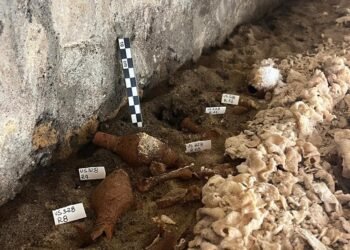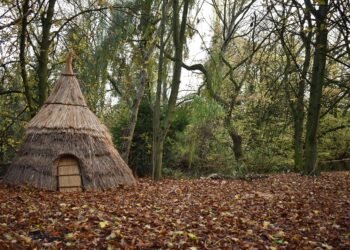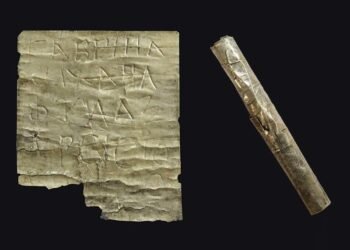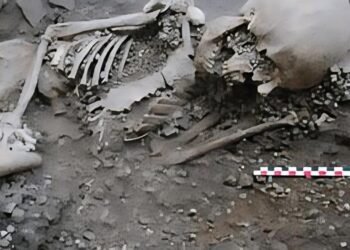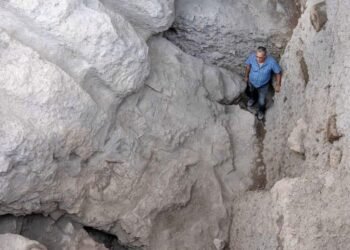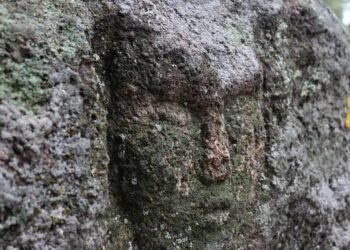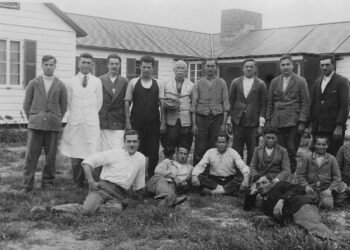Archaeologists have uncovered an extraordinary cache of Roman swords in a cave overlooking the Dead Sea. These four excellently preserved swords, believed to be nearly 1,900 years old, were found hidden in a remote crevice.
The four swords, measuring between 60 to 65 centimeters (approximately 24 to 26 inches) in length, were remarkably well-preserved, with three of them still encased in their wooden scabbards.
The swords were identified as Roman spatha swords, typically used by Roman soldiers during the period. A shorter sword with a ring pommel was also part of the cache. These weapons are believed to have been standard issue to Roman soldiers in the Judea region.
The archaeological team, which included Dr. Asaf Gayer of Ariel University, geologist Boaz Langford of the Hebrew University of Jerusalem, and photographer Shai Halevi of the Israel Antiquities Authority (IAA), discovered the swords while revisiting a cave initially known for a stalactite bearing an ancient Hebrew inscription from the First Temple period, which dates back to 990-931 BCE.
Their primary goal was to use multispectral photography to reveal additional writing on the stalactite, but they made a serendipitous find instead.
Dr. Gayer noticed a well-preserved Roman javelin, known as a pilum, in a narrow crevice, and adjacent to it, parts of the swords’ scabbards. The discovery of these weapons suggested that they had been hidden by Judean rebels, possibly taken as booty from Roman soldiers or the battlefield during one of the revolts against the Roman Empire.
“This is a dramatic and exciting discovery, touching on a specific moment in time,” said Eli Escusido, director of the Israel Antiquities Authority (IAA). He emphasized that the desert’s arid conditions around the Dead Sea have preserved these artifacts in an exceptional manner, creating a unique time capsule that also includes fragments of scrolls, coins from the Jewish Revolt, and leather sandals.
The swords’ hiding location in the isolated cave, north of the Ein Gedi oasis, suggests that the Judean rebels concealed them for later use, avoiding detection by Roman authorities.
While the swords’ precise origin and the historical event leading to their hiding are yet to be determined, initial indications point to their connection with the Bar Kokhba Revolt (132–135 CE), a significant Jewish uprising against Roman rule in Judea.
In addition to the swords, the excavation of the cave revealed other artifacts dating back to various historical periods, including the Chalcolithic period, approximately 6,000 years ago. At the cave’s entrance, a bronze coin from the time of the Bar-Kokhba Revolt was found.
The discovery of these well-preserved Roman swords, part of the ongoing Judean Desert Survey Project by the IAA, underscores the importance of preserving and studying artifacts in the region’s dry caves to prevent looting and gain further insights into the rich history of the area.



